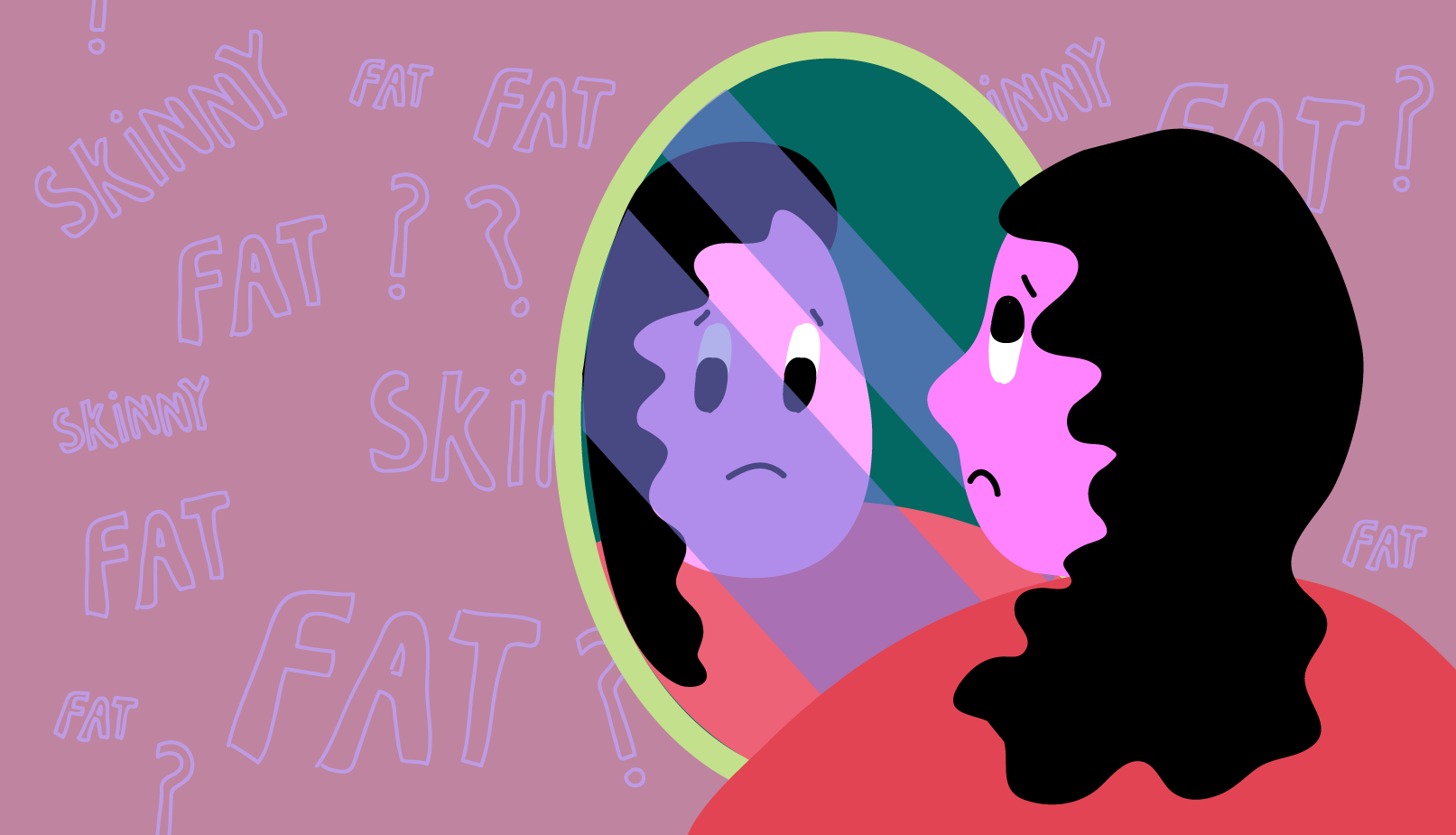When I was in highschool, I decided to go on Weight Watchers.
For those of you who don’t know about it, Weight Watchers is a program that helps people regulate their food intake by creating a point system for daily food consumption. Let’s see if I can remember: I think a piece of toast was two points, a handful of popcorn was three and a cup of pasta was four. I was “allowed” about 30 points a day. Essentially, it was a very problematic program for a growing, young and active girl.
As a six foot tall 15-year-old, I took up a lot more space than my dainty little friends. I wanted to be smaller because well, smaller is better. Smaller means you’ll get a boyfriend. Smaller means you’ll get a job. Smaller means you’ll look like people on television. Smaller means no one can ever make fun of you and all your problems will evaporate. Right?
A tale of an insecure teenager is nothing to write home about. If you were confident at 15, then I’m truly happy for you, but you’re also probably lying. There are a million reasons why you would feel insecure at that age, so my body issues felt temporary. In 30 years, I wouldn’t have to deal with this. I’d picture myself as a business woman with bigger things on my plate, strutting around in fancy blazers and a mature, but very hip short haircut. I thought my body was undesirable, but who didn’t at that age? I’d grow out of it.
One day I was at my friend’s house eating dinner and her mother (a blazer-wearing, short-haired queen) came down the stairs. She asked us what we thought of her new shirt. We smiled and told her she looked beautiful, and what happened next really stuck with me. She spent the next five minutes telling us how insecure she felt, saying the shirt made her look fat and ugly. I couldn’t believe it. There was no age limit to this bullshit? I was going to have to deal with this my whole life?
These questions of physical insecurity and self-esteem seem impossible to answer, but I think it all comes down to one thing: our society perpetuates the narrative that small is good and big is bad.
Lindy West, a writer and comedian, has been writing about fatness for almost 10 years. With charisma and wit, she has navigated the world as a fat activist, answering ignorant, damaging and repetitive questions about living in a larger body. According to an article she wrote in The Guardian, a recurring question she receives is, “By promoting fat acceptance, is there a risk that you are also promoting obesity and all its risks?”
West explains,
The question itself is an assault: it validates the idea that fat people’s humanity is one side of the debate, that our bodies are public property.”
Research shows that weight, contrary to popular belief, is not a health indicator. It is unacceptable and hypocritical to deny the rights of fat people by saying that this is encouraging their health problems. West writes, “If you claim to care about fat people’s health but do nothing to fight fat stigma, you are a liar.”
When my friend was in Grade 6, she had the flu and didn’t eat for 10 days. When she came to school the next week having lost weight, she received countless compliments about her body. How do you think that made her feel about how she looked before?
You might not see a link between my body insecurities and the dehumanization of fat people, but they are completely intertwined. What I need to understand is that even though my thoughts about my body are valid, the moment I voice them in hope for validation that I’m skinny or small enough, I am part of the problem. The moment I complain about my weight, I am insulting anyone around me that might be bigger than me. This is not because I’m calling them fat, but because I am alluding to the fact that, in order to be worthy and to be seen, we must be smaller.
Every time we compliment someone on losing weight, or we comment that someone looks “great” because they are smaller, we are demeaning the person they were before and anybody that’s bigger than them. It’s an implication that has demonstrated time and time again that we do not understand.
We are so invested in the idea that if we lose weight, things will get better. You might even notice that you are having an aversion to these statements right now. This is easier said than done. The notion is pervasive. The sooner we understand and attempt to push back, the better things will get because we simply cannot fight something we cannot see.
There are just so many more things to worry about. After all, we are all very busy, very important and Australia’s on fire.
Graphic @sundaeghost




